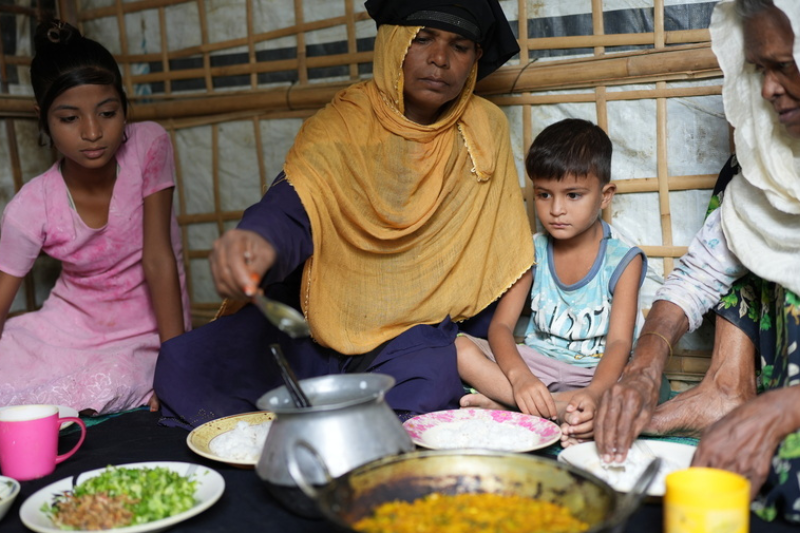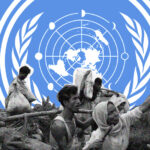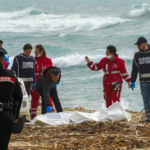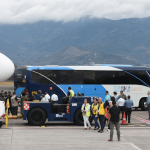
un wfp struggling to give rohingya refugees the assistance they deserve
The UN World Food Programme has raised serious concerns over insufficient donor funding for critical aid efforts supporting Rohingya refugees stranded in camps in Cox’s Bazar, southern Bangladesh. Dwindling resources have brought the second ration cut in just three months.
The people are now more vulnerable than ever. The value of food vouchers for camp residents was reduced from $12 per person per month to $10 in March. The figure fell to just $8 in June.
Despite a number of donors stepping forward with funding, what the agency has received this year is “simply not enough”, said Dom Scalpelli, WFP Country Director in Bangladesh.
Only Reliable Source Of Basic Food And Nutrition At Risk
Most of the nearly a million Rohingya refugees living in the camps fled their homes in Myanmar following widespread attacks in 2017 by the armed forces that former UN High Commissioner for Human Rights Zeid Ra’ad al-Hussein described as a “textbook example of ethnic cleansing”.
The UN Refugee Agency, UNHCR, has been assisting the community since the crisis erupted. It called the WFP food assistance the only reliable source of basic food and nutrition. But this lifeline has been under intense pressure this year due to reduced funding.
Keep Reading
WFP also supports pregnant and breastfeeding Rohingya women and children aged below 5 years. Despite this additional support, scores of families are still struggling to make ends meet. The only potential solution now is to restore the full rations for the entire population.
Empowering Refugees With Education And Skills Training
In addition to the World Food Programme, other humanitarian agencies are also struggling to cope with the impacts of dropping donor funding. The 2023 Rohingya humanitarian crisis response plan requires about $875 million, but is only a quarter funded currently.
Insufficient food and no means of generating a legal income have compelled several families to take desperate steps to survive, such as child labour, child marriage and dangerous boat journeys to cross the Andaman Sea and the Bay of Bengal.
As the situation worsens, more support will be needed from the international community. Empowering the refugees with education and skills training would allow them to become self-reliant and rebuild their lives when they can voluntarily and safely return to Myanmar.









